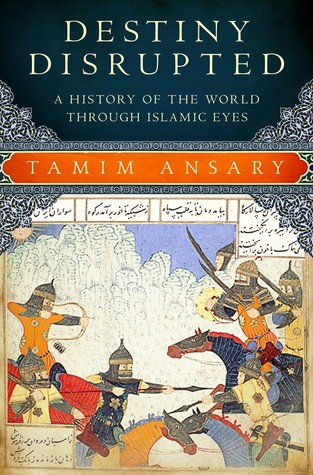More on this book
Community
Kindle Notes & Highlights
by
Tamim Ansary
Read between
February 23 - March 11, 2021
When the Arab geographer Yaqut al-Hamawi wrote a description of western Iran, northern Afghanistan, and the republics north of the Oxus River a few years before the Mongol invasion, he described a fertile, flourishing province. A few years after the invasion, it was a desert. It still is.
Byzantine fire, a glutinous burning substance that was launched from catapults and splashed when it landed, sticking to flesh. It could not be doused with water—in fact, it was probably some primitive form of napalm.
Here in Italy, money supplanted land as the chief marker of wealth and status.
When people have no role except to provide access, however, they have no power except to deny access.
The steam engine provides a case in point. What could be more useful? What could be more obviously world-changing? Yet the steam engine was invented in the Muslim world over three centuries before it popped up in the West, and in the Muslim world it didn’t change much of anything. The steam engine invented there was used to power a spit so that a whole sheep might be roasted efficiently at a rich man’s banquet. (A description of this device appears in a 1551 book by the Turkish engineer Taqi al-Din.) After the spit, however, no other application for the device occurred to anyone, so it was
...more
But they did have what they regarded as one fragment of that outside world within their borders and completely in their power. That fragment was the Armenian community. In reality, of course, the Armenians were no more European than the Turks. They lived right where they had been living since time immemorial. They had their own non-European language, traditions, and history. They didn’t come from anywhere else and were, in fact, more indigenous than the Turks.
Some enthusiasts then wanted to ban all words that had crept into Turkish from other languages, but Atatürk disarmed this agitation with a simple narrative: Turkish, he said, was the mother of all the languages, so words borrowed from other languages were simply Turkish words coming home.


